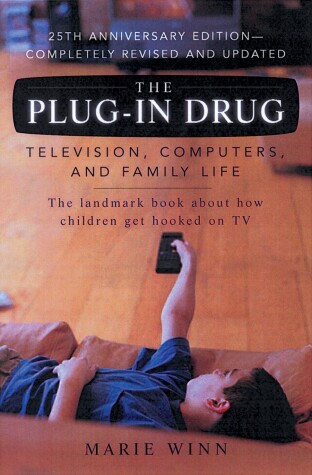The best parts are the stories of families who have removed the TV from their house, either temporarily or permanently:
The first weekend was brutal. In the absence of television, it is very difficult to keep three children occupied from sunup to sundown. We were desperate for relief. A note I made on the first Saturday captures the ambiance of the household: "I'm so exhausted I could vomit...Toys are being scattered faster than I can pick them up."
Our children are playing together, real old-fashioned playing. The two middle children made up an entire musical entitled Dolphins in the Desert.
When the kids had nothing to do, they went out and made a secret hideout -- played there for many days.
Personally I find I can tolerate Saturday housework as a working mother a lot better when I don't see my husband loafing near the TV.
The kids really sat there for quite a while, just as if they were watching. It was pathetic. But it made us absolutely certain we'd done the right thing by chucking the set out.
